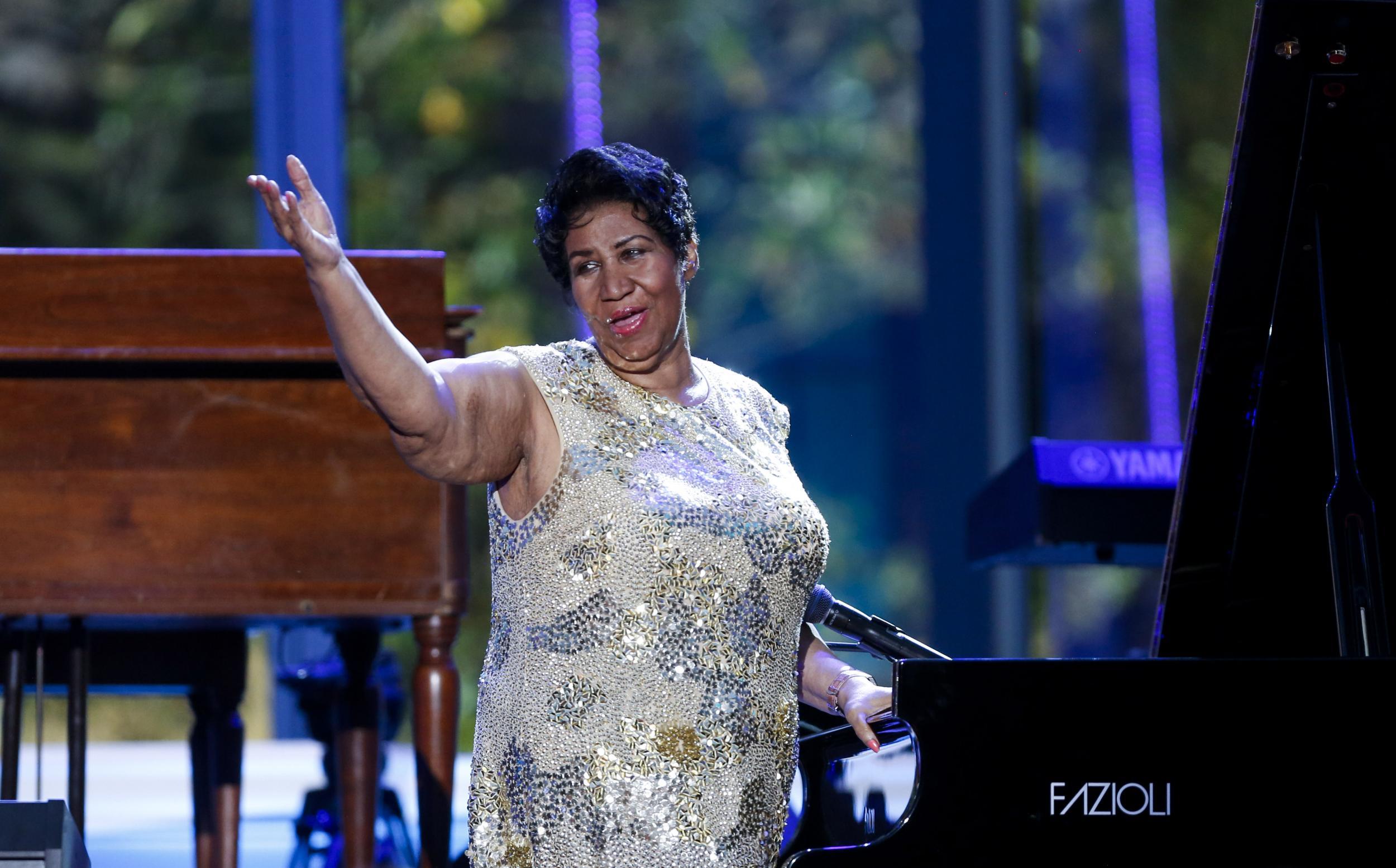Aretha Franklin: Queen of Soul wins right to not have 1972 film Amazing Grace shown
A technical error in the making of the film meant the sound was never synchronised to the image and so it ended up being a silent movie

Your support helps us to tell the story
From reproductive rights to climate change to Big Tech, The Independent is on the ground when the story is developing. Whether it's investigating the financials of Elon Musk's pro-Trump PAC or producing our latest documentary, 'The A Word', which shines a light on the American women fighting for reproductive rights, we know how important it is to parse out the facts from the messaging.
At such a critical moment in US history, we need reporters on the ground. Your donation allows us to keep sending journalists to speak to both sides of the story.
The Independent is trusted by Americans across the entire political spectrum. And unlike many other quality news outlets, we choose not to lock Americans out of our reporting and analysis with paywalls. We believe quality journalism should be available to everyone, paid for by those who can afford it.
Your support makes all the difference.She has demanded respect throughout her career and now legendary singer Aretha Franklin has won it in a court of law – at the expense of a vintage concert film which has had its premiere cancelled.
The 73-year-old soul star ensured an eleventh-hour ruling prevented the US screening of a film which documented one of her concerts in 1972.
Speaking after the hearing, she said: “Justice, respect and what is right prevailed and one’s right to own their own self-image.”
The film, entitled Amazing Grace, was due to be shown three times at the Telluride Film Festival in Colorado at the weekend but without the written consent of Ms Franklin. The documentary, which tells the story of the musical icon recording a gospel album of the same title live in a Los Angeles church, was filmed by Sydney Pollack in 1972.
However, a technical error in the making of the film meant the sound was never synchronised to the image and so it ended up being a silent movie. The film has languished in studio vaults for decades ever since.
In 2011, the singer sued the film’s producer Alan Elliott to prevent him screening the film. She said at the time: “For him to show that film, for him to completely and blatantly ignore me, would be terrible. For him to do that would encourage other people to do the same thing and have no respect for me.”
Aghast at the prospect once again of the documentary being shown at the film festival, Ms Franklin applied to the court in Denver for an injunction on Friday afternoon, and also testified via telephone from Detroit.
Lawyers for the film festival complained Ms Franklin’s move came at the last-minute and the screening at a modest cinema in a remote south western town wouldn’t harm her career or image.
Cecil Morris, a lawyer for the festival, said: “There’s a real, substantial likelihood that Ms Franklin does not own the rights to the images in that picture.
“It is not appropriate at the very last instant on a Friday afternoon before a 7:30 showing to seek this remedy.”
He also claimed the injunction would damage the reputation of the Telluride Festival, which draws film buffs and industry insiders from across the country. However, US District Judge John L Kane ruled in Ms Franklin’s favour stating: “She would suffer immediate and irreparable damage by this showing.”
Ms Franklin began singing Gospel in her father’s Baptist church as a child but turned to more secular music at the age of 18. She was signed to Atlantic Records in 1967 and quickly rose to fame with huge hits such as “(You Make Me Feel) Like a Natural Woman”, “Think”, and “Respect”. By the end of the 1960s she had earned the title Queen of Soul.
The star has gone on to win 18 Grammy Awards and sold more than 75 million records worldwide in a career which has seen her perform a variety of musical styles from soul and R&B to jazz and pop.
Ms Franklin garnered international headlines when she performed at President Barack Obama’s inaugural ceremony in 2009 singing “My Country, ‘Tis of Thee”. Still singing and performing in her seventies, she became the first woman to have 100 songs during her career on the US Billboard’s Hot R&B/Hip-hop songs chart with her cover of Adele’s “Rolling in the Deep”.
Join our commenting forum
Join thought-provoking conversations, follow other Independent readers and see their replies
Comments